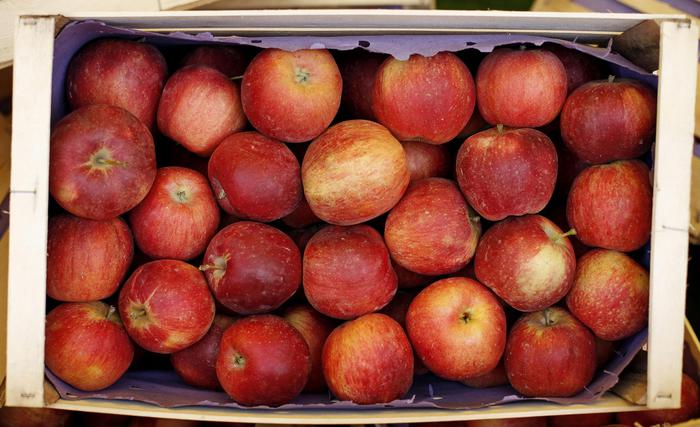health
Nutrition and diet
Vegetarians and vegans
Vegetarians and vegans are at high risk for this medical condition
Veganism and vegetarianism have been linked to better cardiovascular health, longer life and even better fertility, but it turns out that not everything is rosy.
A new study has found that vegans and vegetarians are at greater risk for body fractures
Tags
naturalism
vegetarianism
calcium
Walla!
health
Thursday, 26 November 2020, 08:43
Share on Facebook
Share on WhatsApp
Share on general
Share on general
Share on Twitter
Share on Email
0 comments
Astrazenica: The vaccine we developed for Corona is effective at a rate of ...
A painting by Van Gogh was stolen from a museum in the Netherlands that was closed because of ...
Gamzo: There is currently no solution for the outline for opening fifth grades ...
Contrary to Corona regulations: Mass wedding at a hotel ...
The healthy pelvic device is biofeedback for training the pelvic floor muscles
Netanyahu announced the signing of an agreement with Pfizer to supply vaccines ...
US President Donald Trump publicly recognizes for the first time ...
Auditor's Report on the Corona Crisis: Not Completed Yet ...
The fight against the spread of the corona virus: the number of people infected in Italy ...
Edelstein: The Cabinet made the right decision - to open ...
USA: Pfizer and modern vaccines may be ready ...
The Game Changers - Official Trailer (NETFLIX - The Game Changers)
Vegans usually enjoy better health and live longer lives, but it turns out that not everything is possible.
A new study, the largest of its kind, shows that those who do not eat meat are more likely to suffer from bone crises.
The study found that compared to people who ate meat, vegans with lower calcium and protein intake had a 43 percent higher risk of fractures anywhere in the body, as well as a higher risk of specific fractures in the thighs, legs and vertebrae area.
Vegetarians and people who ate fish but not meat (so-called vegetarians) had a higher risk of hip fractures, compared to people who ate meat.
However, the risk of fractures was partially reduced after taking into account body mass index (BMI), calcium intake and protein intake.
More on Walla!
NEWS
Tofu power
To the full article
"This is the first comprehensive study on the risks of fractures among people from different nutritional groups," said Dr. Tami Tong, a nutritional epidemiologist in the Department of Population Health at Oxford University and the study's editor. Every thousand people over 10 years, compared to people who ate meat.
The biggest difference was in hip fractures, when the risk to vegans was 2.3 times higher than in people who ate meat. "
More on Walla!
NEWS
Veganism and sports go together.
This is how you will do it right
7 good and proven reasons to switch to veganism
The nutritional deficiencies that can occur in vegans
Suffering from flatulence?
Free demo for an innovative Israeli development that will prevent pain
A team of researchers at the Universities of Oxford and Bristol in the UK analyzed data from almost 55,000 people in the EPIC-Oxford study, a potential group of men, mainly women, living in the UK, recruited between 1993-2001, many of whom did not eat meat.
Such follow-up studies identify a group of people and follow them over a period of time to understand how certain factors (in this case nutrition) may affect certain outcomes (in this case risk of fracture).
The secret is probably in the dosage.
Vegan barbecue (Photo: shutterstock)
Of the 54,898 participants included in the study, 29,380 ate meat, 8,037 ate fish but not meat, 15,499 were vegetarian, and 1,982 were vegan at the time they were recruited.
Their eating habits were first assessed at enlistment, then again in 2010. Participant follow-up was on average for 18 years, until 2016. During the study, a total of 3,941 fractures occurred, including 566 fractures in the arms, 889 in the wrist, 945 in the hip, 366 in the leg. , 520 in the ankle and 476 fractures that other prohibitions like clavicle, ribs and vertebrae.
In addition to a higher risk of hip fractures in vegans, vegetarians and fish eaters compared to meat eaters, vegans also had a higher risk of leg fractures and other body fractures.
The researchers did not notice any significant differences in the risks between the different groups for fractures in the arm, wrist or ankle after taking into account the participants' BMI.
"Take into account the benefits and risks"
"Previous studies have shown that a low BMI is associated with a higher risk of hip fractures, and low calcium and protein intake has been linked to poor bone health," said Dr. Tong. The study showed that vegans, on average, had a lower BMI. Lower than meat eaters, were at higher risk for fractures in some places in the body. "Balanced and mostly vegetarian diets may actually improve nutrition and have been linked to lower risks for diseases including heart disease, but people need to consider the benefits and risks of their diet Of calcium and protein and also maintain a healthy BMI, ie neither overweight nor overweight. "
The study at this stage is not satisfactory and more in-depth research will be needed to determine why the risk is increased for vegans. The sample size was much smaller in the vegan group, given When drawing conclusions, along with the fact that extra calcium and other nutrients were not taken into account.Some have also suggested that the difference may be in the way calcium is absorbed - different factors may explain calcium intake, including vitamin D levels, and these may differ between diets.
Share on Facebook
Share on WhatsApp
Share on general
Share on general
Share on Twitter
Share on Email
0 comments














